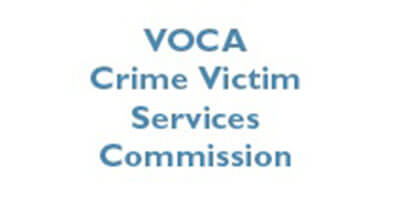The following post was written by one of our Social Work interns, Kyle, who’s been interning with us since August. He’s attending Oakland University and wishes to pursue a career in the Human Service Field.
Post-traumatic stress disorder (PTSD) is classified as a condition of persistent mental and emotional stress as a result of an injury or severe psychological shock. The person experiencing PTSD typically recalls the event in vivid recall, and often even has dreams replaying the event over again; this individual typically finds themselves disconnecting from their loved ones, feeling depressed, and are typically in need of professional assistance to properly overcome PTSD. In recent decades, it has been found that working professionals in the human service or healthcare fields have a very real possibility of falling victim to Secondary Traumatic Stress (STS), also known as compassion fatigue. Secondary Traumatic Stress involves work-related, secondary exposure to traumatic events and can produce the same exact symptoms as PTSD. Doctor of Philosophy, Kim M. Bates, claims the symptoms of STS only differ from those of PTSD in the timing of the after effects from the original traumatic experience. For human service professionals, STS most commonly occurs as a result of the professional having strong empathetic emotions for another individual that has undergone trauma.
Rather than focusing merely on the nature of STS, this blog is to prepare one for the continuous practices of strong emotional resilience and mindfulness skills found to help fight Secondary Traumatic Stress. While interacting in an empathetic manner with a victim of PTSD or anyone with excessive psychological stress, it is very plausible for even the most-experienced professionals to fall victim of STS. When working closely to a traumatic situation, always remember these tips:
Awareness of your Daily Risks– It is important to constantly remind oneself of the incredible level of delicacy and constant compassion required for a human service job position. Remember to be mindful that trauma does not merely affect the victim, trauma can create a ripple effect of hardship for anyone that does not prepare themselves for the daily risks the human service environment brings forth. When a human service professional has a history of their own trauma, it is substantially more essential to be mindful of their own ‘triggers’.
Create a Preventative Plan– Remember that in the human service field, you did not sign up for an easy ride, and it is about helping the victims reach a level of serenity within themselves. Still however, it is important to create a work/life balance; too much of one or the other can create resentment, sleeplessness, and eventually full-blown job fatigue.
Manage time for Daily Self-care– While working closely to trauma, maintain a healthy relationship with your client, and create time in the day EACH day to do something small and productive that YOU want to do. Whether it be a breathing exercise, a few yoga poses, or even some housekeeping tasks you enjoy fulfilling. In addition, take good care of your daily diet with plenty of rest each night.
Creativity in the Workplace– Bring creative activities into the workplace to allow the victims and yourself the ability to see the beauty that life beholds once again. This can include coloring or drawing, painting, scrapbooking, or even journaling.
Seek Consultation– Especially in today’s world, one should never be required to take on the trials and tribulations of human service jobs alone. It is essential that human service workers band together in a compassionate way that allows hardships to be shared confidentially, so nothing becomes internalized.
Seek Counselor of your own– There is nothing wrong with consulting with others, sometimes conversing with a professional will be the most impactful outlet for someone who works closely to trauma.
Secondary Traumatic Stress must be taken seriously, as it can quickly detonate someone’s mental state. Ultimately, no one should go through the hardships of Secondary Traumatic Stress alone; always refer to someone you trust to confide your current mental state.








